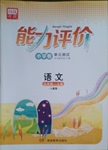题目内容
【题目】D
More than 40 countries, including Russia and Taiwan, have agreed to be founding members of China's proposed Asian Infrastructure Investment Bank. However, two of the world's largest economies, the United States and Japan, have held off at this time.
China proposed the bank last October as a way to finance roads, bridges, ports and other needed infrastructure projects in Asia. The time limit for joining as a founding member was March 31. In only a few months, the number of countries seeking membership nearly doubled. They came from Africa, Europe, South America, Asia and the Pacific. Some European powers added themselves to the list. They include Britain, Germany, France and Italy. Other important economies include South Korea, Australia and Russia.
Taiwan also sought to become a founding member. But it is not clear how China will react. Taiwan and China do not have diplomatic ties. But, relations have improved since the election of President Ma Ying-jeou in 2008. The two sides also are working on details of a trade agreement. However, popular opposition in Taiwan to mainland China's increased influence on the island remains very strong.
The U.S. and Japan have said they are concerned about the governance of the Asian Infrastructure Investment Bank, or AIIB. The United States has urged countries to consider details about the bank's governance and standards -- its social and environmental policy -- before joining. Critics say the AIIB threatens the work of existing development banks such as the World Bank, the International Monetary Fund and the Asian Development Bank.
Yet, the Asian Development Bank itself noted in a recent report that the need for infrastructure projects in Asia is great. The institution, led by the U.S. and Japan, estimated last May that the Asia Pacific area needed $800 billion each year in infrastructure development.
Experts are watching to see how China will take its leadership role in the new bank. The AIIB is expected to start with $100 billion in capital, mostly from China. Some experts point to the high interest in membership. Shi Yinhong is a political scientist at Renmin University in Beijing. He says China's leading part in the bank comes with benefits and costs.
In other words, while China has gained from the effort to develop the AIIB, it will also have to satisfy other bank members and multi-national institutions. Officials at the World Bank, International Monetary Fund and Asian Development Bank say they are looking for ways to cooperate with the AIIB.
【1】What does the underlined phrase in the first paragraph mean?
A. turned down B. subscribed to
C. thought over D. turned a blind eye
【2】Which of the following is true?
A. The bank proposed by China aims to finance needed infrastructure projects in the world.
B. There is no time limit for joining as a founding member.
C. Many countries in the world actively applied to seek membership.
D. China has given a definite attitude toward Taiwan.
【3】In what aspects do The United States and Japan show worry for AIIB?
A. Regulation and running
B. Raising money and investment
C. The number of joining countries
D. China’s influence in it
【4】 What can be inferred according to Shi Yinhong?
A. China won’t consider its benefits in AIIB.
B. China won’t play a leadership role in AIIB.
C. China will bring out its role with benefits and costs.
D. China will drop out of AIIB after its foundation
【答案】
【1】A
【2】C
【3】A
【4】C
【解析】
试题分析:文章大意:文章主要介绍了亚投行进展的相关情况。(文章材料出自网络,试题原创)
【1】A 词义猜测题 依据上下文来看目前美国和日本是拒绝加入亚投行的,故划线短语表示的是“拒绝”之意与A项的内容一致;B项是“同意,订阅”的意思;C项是表示“考虑”而D项是“忽视”,故选A。
【2】C 细节理解题 依据文章第二段中的“In only a few months, the number of countries seeking membership nearly doubled.”可知答案。
【3】A 细节理解题 依据文章第四段中的“The U.S. and Japan have said they are concerned about the governance of the Asian Infrastructure Investment Bank, or AIIB”可知答案。
【4】C 细节理解题 依据文章最后第六段中的“He says China's leading part in the bank comes with benefits and costs.”可知答案。

 能力评价系列答案
能力评价系列答案 唐印文化课时测评系列答案
唐印文化课时测评系列答案